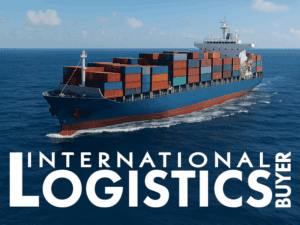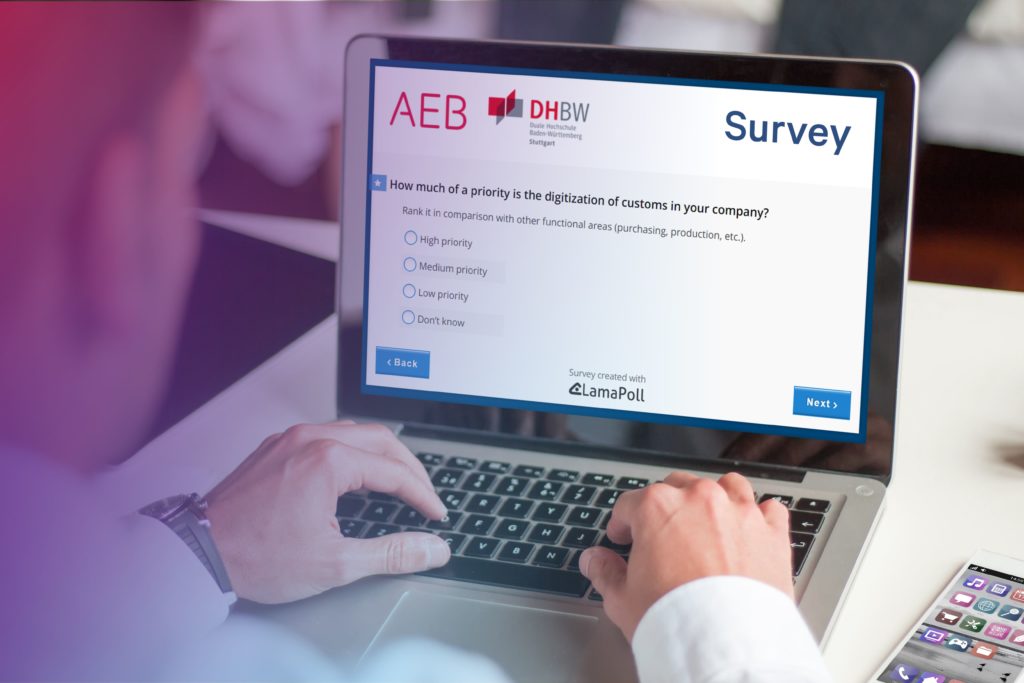A majority of companies are planning to digitize their customs processes or have already taken the first steps to implement this. That is the conclusion of the new study “Clear the track for Digital Customs Management” published by software company AEB in cooperation with the DHBW University in Stuttgart, Germany. Based on a survey that took place this summer, more than 35% of the 435 respondents report that their company had already implemented at least one project to digitize customs operations. Nearly the same number already have such a project in the planning or implementation phase.
One third of respondents report that the digitization of customs has high priority in their company. This is an impressive figure considering that customs departments are usually rather small and have to compete for scarce resources against other areas such as procurement, sales, or production.
“We assume that the public debate about the growing number of trade conflicts boosts the interest of management in digitizing customs processes. Companies need efficient standard processes to free up time for the experts in their customs departments to solve problems and work on strategically important tasks”, says Dr. Dirk Hartel, Professor for Logistics and Supply Chain Management at the DHBW University and co-author of the study.
Survey respondents see the centralization of customs management as the key effect of digitization (61%)., followed by centralized archiving (49%), and improved IT communication with customs authorities (43%). Respondents attribute particular urgency to digitization projects in the areas of “Export customs management”, “Export controls”, and “Origin and preferences”.
A majority of respondents expect lower personnel expenses in customs management to be a result of digitization. Some 73% of survey respondents expect personnel costs to decline by more than 10 percent. But only 7% of companies actually plan to cut personnel in their customs departments in the coming three years. The reason for this low figure is the shortage of qualified personnel.
“The aim is more to handle the workload with the existing personnel rather than actually downsize. A company’s performance is only scalable with a digital strategy. If customs processes are not digitized, the customs department will become a critical bottleneck,” says Dr. Ulrich Lison, member of the Executive Board at AEB and the study’s other co-author.
Digitization projects in customs management frequently encounter obstacles. Some 36% of respondents deplore their company’s lack of expertise in digitization, 35% a lack of support from management, and 33% a lack of resources. Despite all this, optimism prevails: Some 7% of respondents consider their companies very well prepared for the future challenges of digitization, with another 62% feeling fairly well prepared.
Progress in digitization as calculated in the study is much less positive. Only some 10% of companies fall into the category of digitization experts. Another 33% ranked as advanced. Nearly 36% have at least gained initial experience (“beginners”), but 21 percent are mere observers until now.
“Companies should get started quickly and easily to gain experience. They should initially focus on simple, small projects that deliver a quick return – such as automating export management or creating a dashboard of global trade data,” adds Dr. Ulrich Lison.
One of these projects could be better IT integration of customs service providers. Nearly 27% of companies rely on customs service providers primarily or completely for their customs operations. Some 63% of these companies communicate with their customs providers mostly by email or phone, and only 26% have an IT interface for structured data exchange.
“Integrated communications between IT systems is a basic prerequisite. Otherwise, outsourcing only creates more work as a result of redundant actions and potential communication errors that ultimately result in higher total costs of ownership,” says Dr. Dirk Hartel.
www.aeb.com/gtm-study
Companies move forward in digitizing their customs processes: AEB releases new study
About Logistics Buyer
International Logistics Buyer is the leading authority in global logistics and supply chain content, delivering expert news, in depth articles, exclusive interviews, and industry insights across print, digital, and event platforms. Published 10 times a year, the magazine is a trusted resource for professionals seeking updates and analysis on the latest developments in the logistics sector.
To submit an article, or for sponsorship opportunities, please contact our team below.

Chris Lingham
Group Sales Manager

Afua Akoto
Marketing Manager
Read the Latest Issue
Follow us on LinkedIn
Follow us on LinkedIn
Click HereAdvertise here
Reach decision makers and amplify your marketing





























